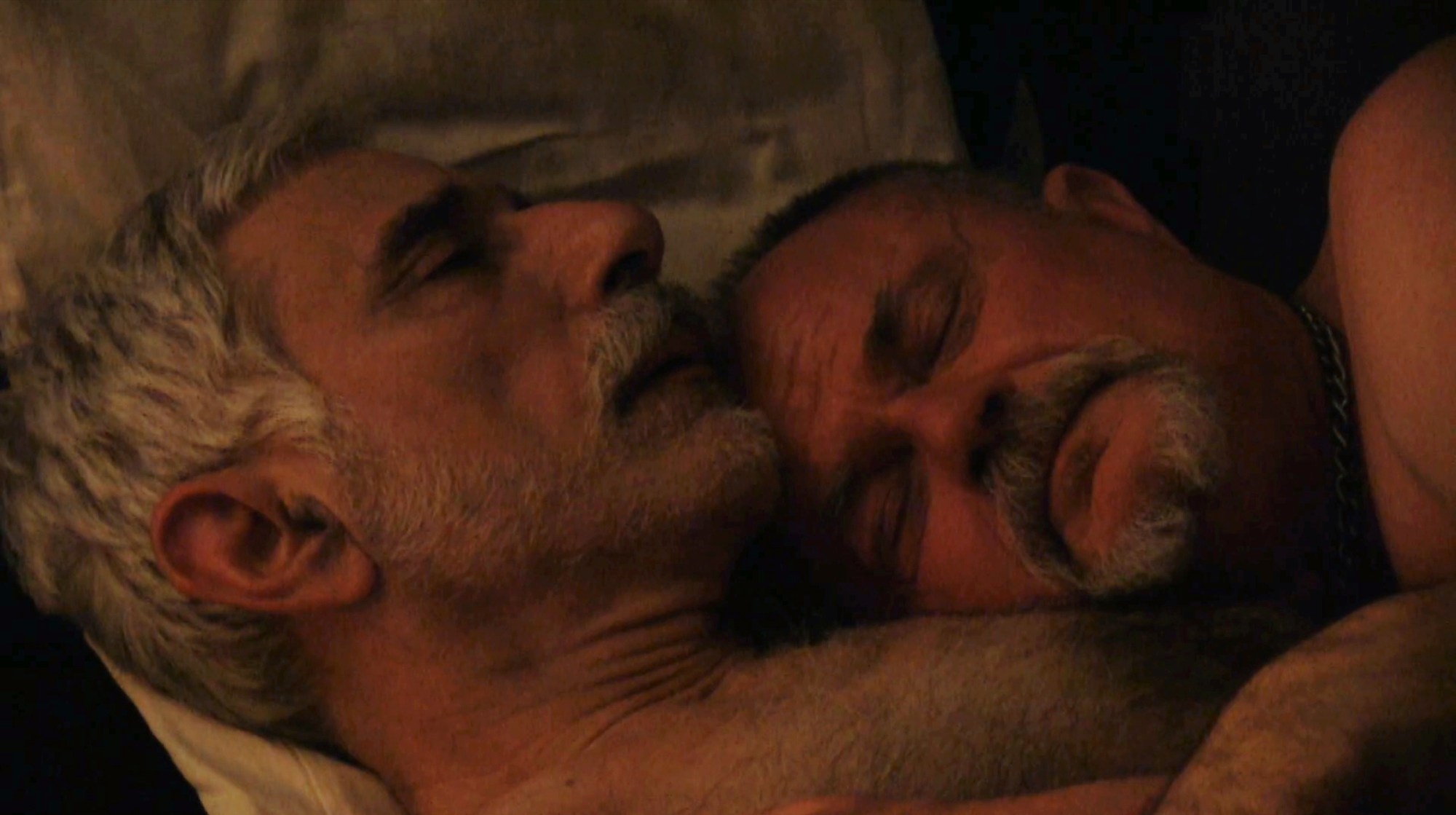
- Film
Filmmaking is Like a Love Affair for Panayotis Evangelidis
Panayotis Evangelidis is a Greek novelist, screenwriter and filmmaker whose documentaries are known for their intensely personal view on LGBTQ life and issues, in Greece and in America. Among others, his latest, The Tilos Weddings, chronicles the struggles of the Greek LGBTQ community to legalize same-sex marriage from 2008 up to now; They Glow in the Dark looks at the aftermath of the AIDS crisis through the lives of a couple of older gay men who move to New Orleans after Hurricane Katrina and try to make ends meet by selling trinkets; Irving Park follows the unconventional family of four gay men in their sixties who design and lead their lives unapologetically according to their own desires.
By his limited audience, Evangelidis has been praised for the delicate and layered portrayal of his protagonists. Yet, although he is considered an accomplished writer in Greece, he remains by choice far from the local and international film production establishment. “I do everything on my own,” he told the HFPA in a zoom interview on June 29, 2023. “I am my own crew, my films are the cheapest films in the world.” Whatever little funding there is in his budgets covers mostly post-production costs. Only his last film, The Tilos Weddings, was licensed to the Greek streaming platform Cinobo for distribution in Greece and Cyprus.
It isn’t that he does not care about having a budget. “[Documentarians] are badly treated here in Greece – no one gets paid, the state doesn’t give much, the foundations maybe give a little bit… so even a little bit of money sounds like a miracle from heaven,” he laughed. But he would rather not lose time and energy trying to compete for the scarce resources. “I don’t seek any kind of help because I know from my colleagues how long you have to wait, how many stages and bureaucracy this involves, so, I say… no, thank you.”
He went on to acknowledge that his lone-wolf style affects the production value of his work. Yet, to him, it is worth it: “I’m OK with that… I put [the matter] on the scale and decided … what counts for me is to make the film and to feel connection to my subjects … Usually I do portraits of people in the LGBTQ community, so I’m in my own element and I’m passionately interested. I do the films to get to know the [protagonists] better, to answer my own questions and because something of mine resonates in their stories. As one of my protagonists once said when he presented one of my films in a festival – ‘You will see a movie about me but it’s really a movie about Panayotis.’ And there’s truth in that.”
He explained: “Through the way I interview these people, what I shoot, the way I edit. I build something that reflects on my own interests, what really moves me and stirs[feelings] in me, what makes my heart throb… In that sense my films are stories out of my own soul.”
What is it that moves him so about older gay men trying to survive, literally and figuratively, or older men enjoying unconventional sexuality? “I’m also an older gay man,” he smiled playfully. Then, in a more focused tone, he added: “My protagonists are marginalized people, more or less, in the sense of social marginalization, like [the men] in They Glow in the Dark who are poor, who try to survive by making statuettes, and are sick and dependent on their daily sales … The people in Irving Park decide to do according to their own lifestyle, which is condemned and criticized, not only by society but sometimes by their own community.”
“One of the main reasons I made Irving Park,” he continued “was to demystify [sadomasochism]. It’s not like you enter a house and you see black nights with whips etc., you see real people like you and me who have this desire and, with mutual consent, create this world of fulfillment, and service and… S&M. They are not feeling guilty, they are very open about their sexuality and they claim that as their right. And they do it.”
There is a price to pay for staying free of compromise. It is the price that most if not all of Evangelidis’ characters and he, himself, have to pay. All American LGBTQ film festivals rejected both They Glow in the Dark and Irving Park, even though both of them unfold on American soil (New Orleans and Chicago respectively). “It is what it is,” he said. “Whatever happens makes me happy, and if it doesn’t, that’s OK too.”
For Panayotis Evangelidis, filmmaking is an intimate, bonding experience. “[My protagonists] trust me but also, I would say, they deeply need to share their story and haven’t yet found the opportunity to do so. So I appear and… you know, it’s like love stories – two people meet, nothing may happen, maybe a one-night stand, or you meet someone with whom there’s a soul connection… And that is when I make a film.
“In documentary work, as I said once, if you can… not do it, don’t do it. If you have to look for a subject or get an idea… no, absolutely don’t! This is how I work… It comes to me and I try to go around it because I love life and I have millions of books to read, things to do… But then, the connection is so strong, and I have to succumb! It’s the same with love affairs. If I can avoid [a love affair], I avoid it. If I cannot avoid it, it means there’s something.”